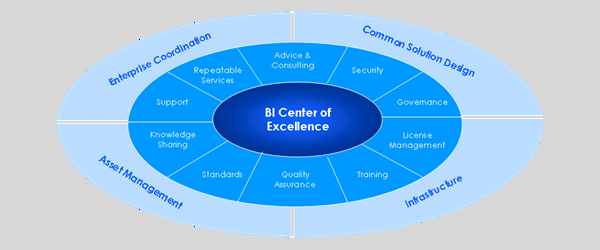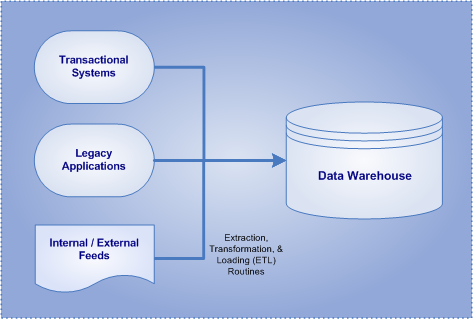Sample Charter for a BI Center of Excellence (BI COE)

Sample BI Center of Excellence (BI COE)
In order to ensure a predictable and repeatable usage of Business Intelligence (BI) services across organization X, and to maximize the value of licensing cost, organization X’s information technology department has adopted the formation of a Business Intelligence Center of Excellence (BI COE). This BI COE performs at an enterprise level and serves as a cross-functional team with a permanent, formal organization structure. The team includes defined tasks, roles, responsibilities and processes for supporting and promoting the effective use of business intelligence across the organization.
![]()
In addition, organization X has chosen to standardize on an organization-wide reporting and decision support platform from SAP Business Objects to provide analysts and decision-makers across the enterprise with easy and flexible access to critical data. While Business Objects is being made available to the users through-out the enterprise, there is a need to establish and uphold best practices, guidelines, policies, standards and training to ensure the usability, sustainability and maintainability of the environment.
Fundamentally, the BI COE at organization X has three major responsibilities:
- 1. Application/security administration of Business Objects environment
- 2. Management and support of Business Objects application infrastructure
- • Web Intelligence
- • InfoView
- • Crystal Reports
- • Xcelsius Dashboards
- 3. Oversight, development, and implementation of enterprise business intelligence projects.



